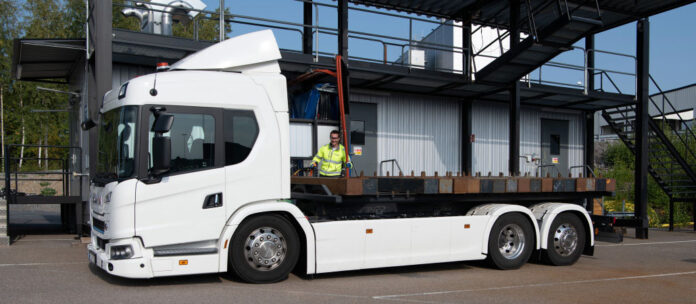With Scania’s planned rapid introduction of electric vehicles over the coming years, there is a concurrent need to intensify battery testing and tailored deployment. Scania is therefore investing EUR 15.5 million in a new battery laboratory at its research and development facilities in Södertälje, Sweden.
With Scania’s planned rapid introduction of electric vehicles over the coming years, there is a concurrent need to intensify battery testing and tailored deployment. Scania is therefore investing EUR 15.5 million in a new battery laboratory at Construction of the 1,000-square metre laboratory recently commenced and building works will be completed by spring 2021. Following extensive testing and verification of equipment and instruments, the laboratory will be fully operative by autumn 2021.The laboratory will contain three 250-square metre test halls for battery cells, modules and packs. Adjacent to these halls, the laboratory will also have facilities for test sample preparation in order to improve work environment, safety and testing uptime.
“With the accelerating pace of development, the laboratory will strengthen our capacity to right-size batteries for every application,” says Claes Erixon, Head of Research and Development at Scania. “We have an ambitious roadmap ahead of us in annually launching new and updated electric products with related battery services. This underscores the need for world-class skills and knowledge in battery usage and lifecycle optimisation.”
The laboratory will primarily focus on battery performance and lifespan evaluation in varying climate conditions from -40°C to 70°C. Scania’s engineers will examine and identify the best operational conditions for the battery with regard to, for example, temperature setpoint, state of charge window and charging power profile for tailored utilisation in optimising battery life and customer needs.
“Scania will continue to invest in competence both in our own operations as well as through important partnerships. We are going to make sure that the Södertälje and the Stockholm region will remain in the forefront of in the research and development also in an electrified future of heavy transport,” says Erixon.
The new battery laboratory will complement a smaller facility with a climatic chamber for battery pack testing that was taken into use earlier this year. With this lab, Scania can test the performance of battery packs on operational electric trucks and buses without removing batteries. Vehicles are parked adjacent to the lab and connected to testing equipment.



